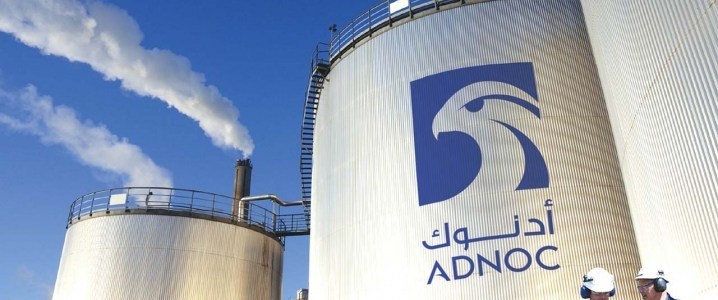The United Arab Emirates has joined ally Saudi Arabia in opening the oil floodgates, broadening the front against Russia in a price war.

State-owned Abu Dhabi National Oil Co (ADNOC) on Wednesday said it would boost production by 1 million barrels per day, up from 3 million, by April.
Saudi Aramco on Tuesday said it would ratchet up production by 2.5 million barrels per day, to an unprecedented 12.3 million bpd, starting April 1. It also was offering discounts to buyers, from US$4-8 per barrel, according to the monarchy-aligned Arab News.
The concerted effort to flood the market follows the breakdown of the OPEC+ alliance with Russia, which refused to join Riyadh in propping up oil prices at a Vienna meeting last Friday.
The Saudis had been seeking to deepen longstanding OPEC+ production cuts to make up for a drop in demand, particularly from China, due to the coronavirus.
Rebuffed by Moscow, Riyadh has gone 180 degrees, and the two heavyweights are now in a game of chicken of who can sustain losses the longest.
Crude oil was hovering around $31 per barrel on Thursday, down 5.58% from the previous day’s trading.
Aramco, listed three months ago on the Saudi stock exchange and bought up by Saudis under intense pressure, has seen its share values drop from 33 to 28.95 riyals since the Saudi-Russia alliance unraveled.
The International Energy Agency cut its 2020 global demand forecast this week by 1.1 million bpd.
“For the first time since 2009, demand is expected to fall year-on-year, by 90 kb/d,” the Paris-based agency said.
Goldman Sachs has warned oil prices could dip to near $20 per barrel this summer.
The Trump administration, which has close alliances with both Riyadh and Abu Dhabi, appears unopposed to cheap oil in an election year.
Saudi Crown Prince Mohammed bin Salman conferred with Donald Trump by phone ahead of the kingdom’s oil gambit, and the administration is “strongly considering” federal aid for American shale companies, the Washington Post reported.
Should North American shale producers get sidelined by their low-extraction cost competitors, that could help offset negatives for OPEC in the long run.
Russia, which boasts a far more diversified economy than that of energy-dependent Saudi Arabia, has signaled it is prepared to dig in.
“The Russian oil industry has a high-quality resource base and a sufficient margin of financial strength to remain competitive at any forecast price level, as well as maintain its market share,” said Russian Energy Minister Alexander Novak.
Moreover, the fact that Moscow initiated the showdown suggests the Kremlin has done the necessary calculations, writes Asia Times’ contributor Giovanni Pigni.
Russia’s move has been widely interpreted as a calculated measure to prevent US shale-oil producers seizing a larger global market share, he adds.
“The US and other non-OPEC+ countries are ready to increase production. That is why the deal did not make sense from the point of view of Russia’s interests,” said Mikhail Leontiev, spokesperson at Russian state oil giant Rosneft.
Karen Kostanian of Bank of America, quoted by Bloomberg, says Moscow is poised to weather price drops until $15-20 per barrel.
Depressed global demand for oil amid the spreading coronavirus pandemic may yet push the rivals back to the table, however.
“OPEC and OPEC+ played an important role in delivering market stability. The UAE Ministry of Energy and industry firmly believes that a new agreement is essential to support a balanced and less volatile market,” Emirati Minister of Energy Suhail al-Mazrouei tweeted on Wednesday.
The Gulf states stand to risk recession should the price war endure, Oxford Ecomics warns.
Moscow has meanwhile left room for an off-ramp: a return to the old OPEC+ production cut levels.